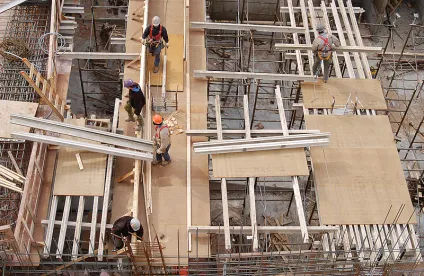In a recent decision written by Judge Sykes, affirming a decision from the Western District of Wisconsin, in an issue governed by Wisconsin law, the Seventh Circuit ruled that a title insurer has no duty to indemnify a construction lender for mechanics’ liens arising from the lender’s decision to halt its funding.
The court held in BB Syndication Services, Inc. v. First American Title Insurance Co., No. 13-2785 (Mar. 12, 2015), that, when liens arise as a result of insufficient development funds, the lender—which has a duty to investigate and monitor the construction project—has in effect “created” those liens when it stops disbursing funds.
The “West Edge” project in Kansas City, Missouri ran into trouble with cost overruns early. When the developer would not cover the shortfall, the contractors walked off the site, and BB Syndication (the project’s construction lender) froze its regular disbursements.
The contractors filed liens, and the developer’s bankruptcy soon followed. BB wound up on the short end of the stick in bankruptcy court, since the contractors’ liens received priority. It recovered only $150,000 on its $61 million claim—for a whopping 0.2 cents on the dollar.
BB then tried to shift its losses to its title insurer, but the insurer denied coverage. Exclusion 3(a) of BB’s policy provides that those liens that are “created, suffered, assumed or agreed to” by the insured lender will not be covered under the title policy. Cutting off funding to the project, the insurer argued, “created” the contractors’ liens that outflanked BB’s own claim in bankruptcy.
The Seventh Circuit sided with the insurer. Pointing to loan documents that gave the lender broad rights to monitor the project and significant discretion, the court explained that title insurance does not protect construction lenders against the risk of cost overruns, especially where the lender has the ability and duty to monitor the project. The court thus placed the risk of loss squarely on the lender.
There are ways, however, as the court pointed out, that a construction lender can address this issue in the future: (1) negotiate for the so-called “Seattle endorsement,” a promise from the title company not to invoke Exclusion 3(a) for liens arising from insufficient funds; (2) take steps to decrease the likelihood of default and non-payment by the borrower (e.g., obtain a third-party guarantee or a performance bond); or (3) remain vigilant and keep close tabs on the progress of construction.




 />i
/>i

